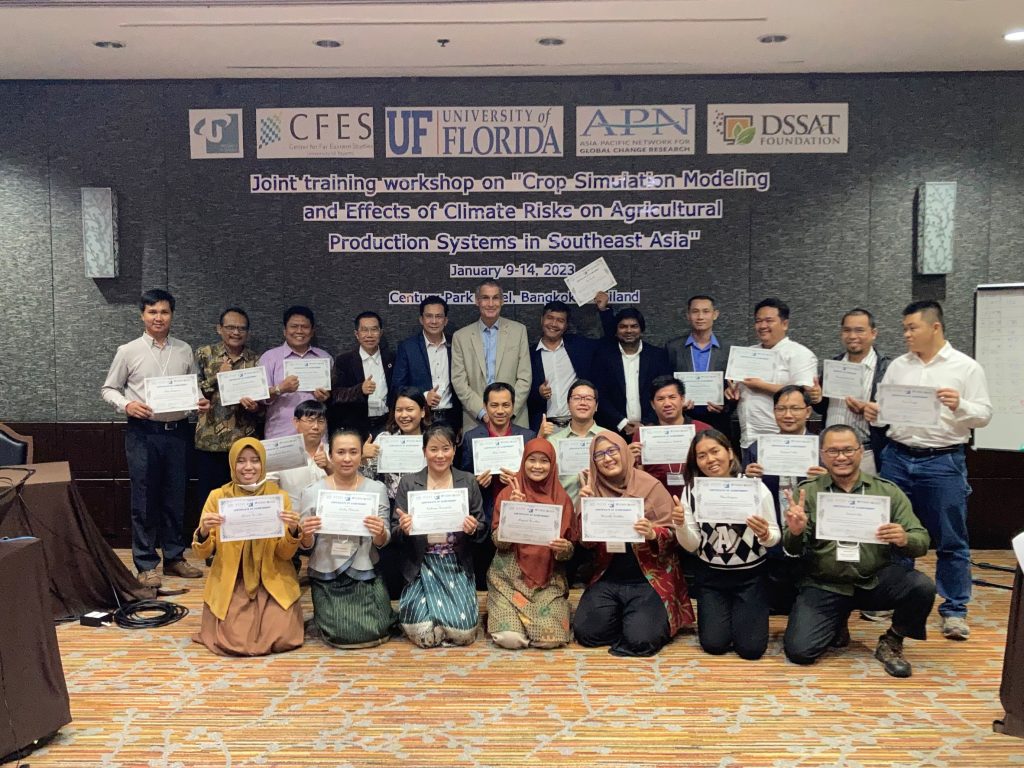The University of Toyama, in collaboration with the University of Florida, the DSSAT foundation, and the Asia Pacific Network for Global Change Research (APN-GCR), organized a joint training workshop entitled “Crop Simulation Modeling and Effects of Climate Risks on Agricultural Production Systems in Southeast Asia.” The overall aim of this training program was to provide participants with a better understanding of simulation models in predicting the relationships of agricultural resources, i.e., water and nitrogen, under various weather and climate conditions, on crop phenology, growth, and yield.
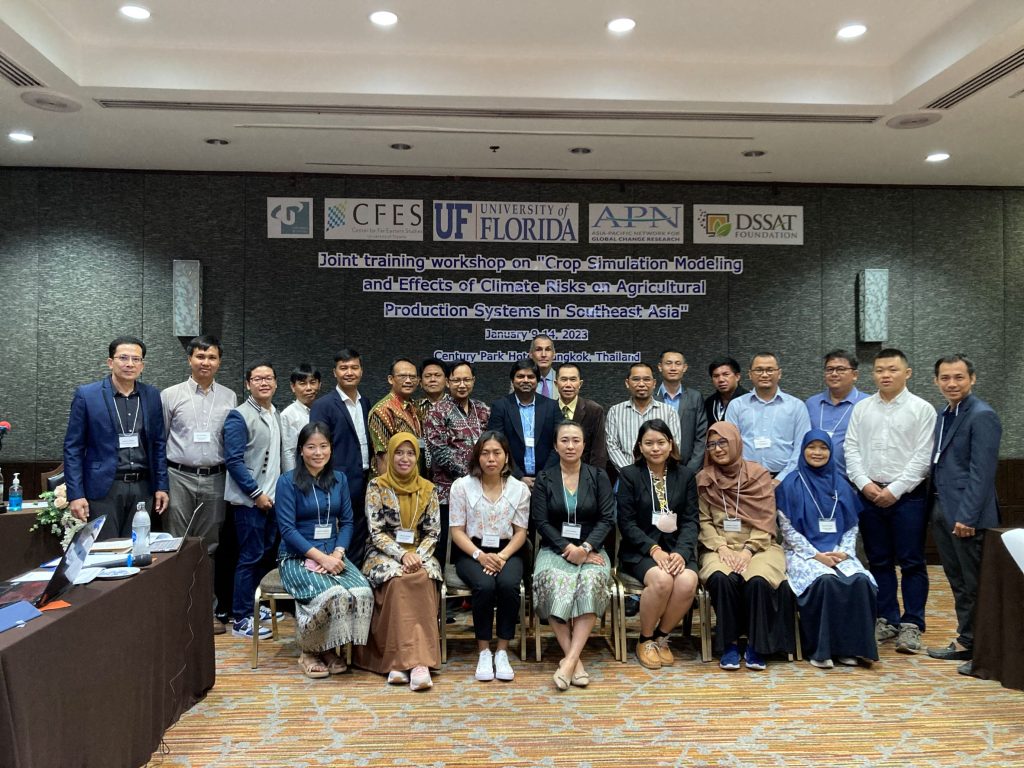
An intensive six-day DSSAT training workshop was held from January 9 to January 14, 2023, at the Century Park Hotel, Bangkok, Thailand. Twenty-one high-quality participants from Cambodia (7), Indonesia (7), Lao PDR (6), and Thailand (1) were selected to attend this training, including seven female and fourteen male participants. The attended participants include academicians, young researchers, students, and extension officers working on agriculture, plant breeding, agro-forestry and hydrological issues from four Southeast Asian countries.
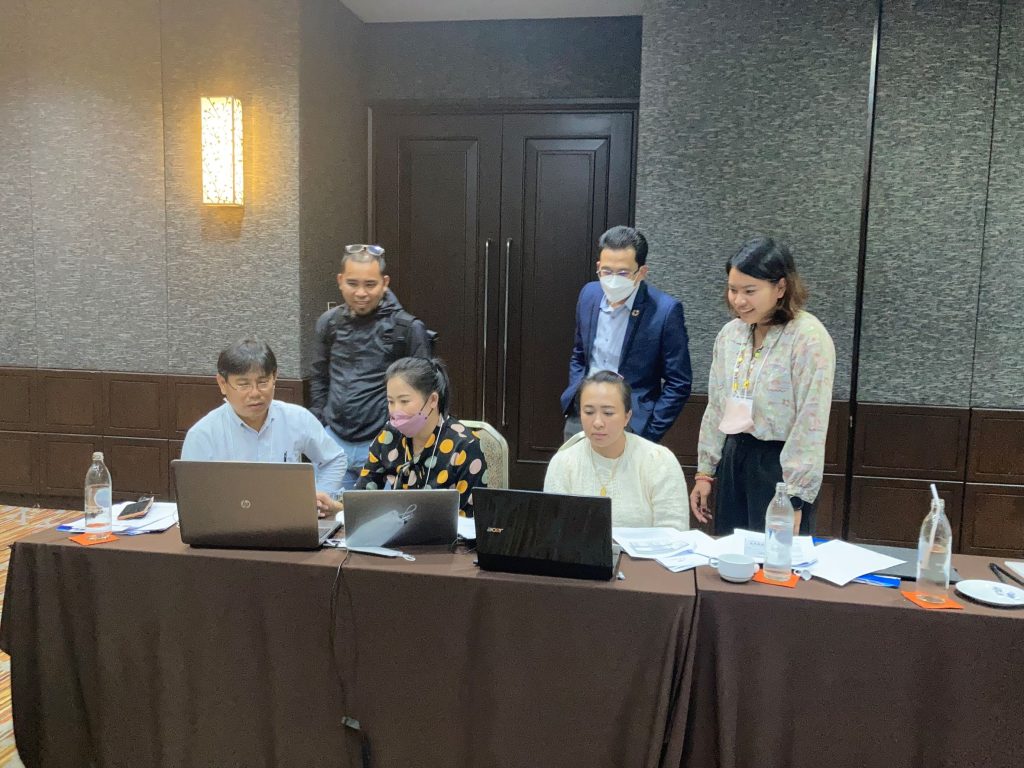
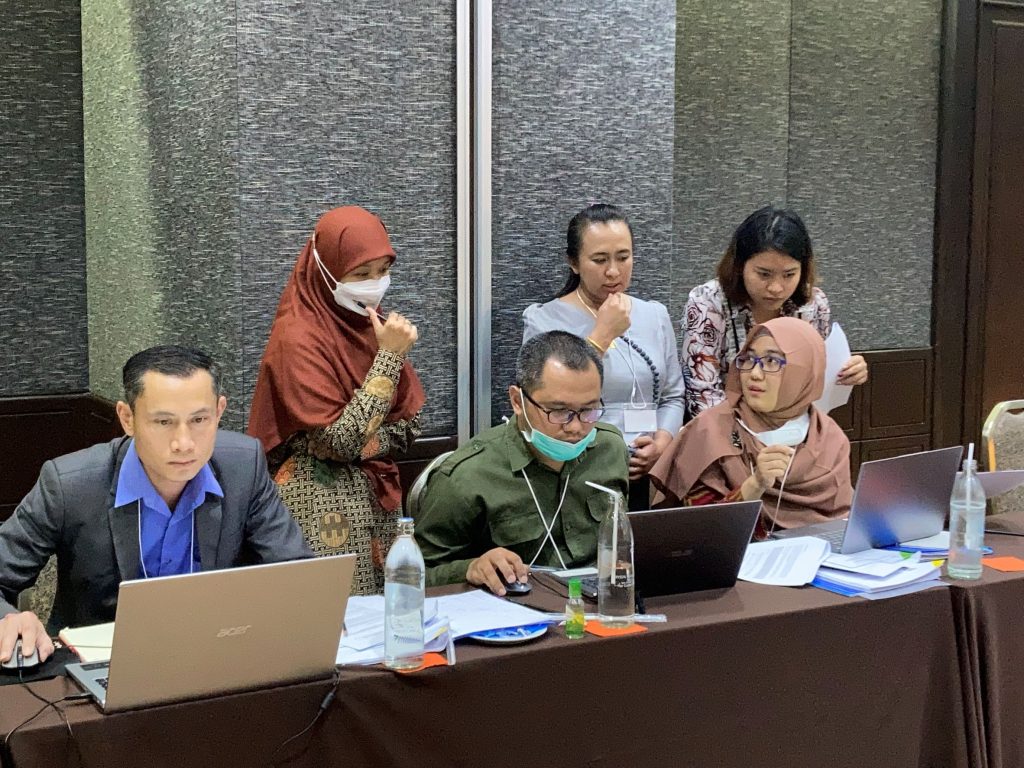
The DSSAT workshop in Bangkok consisted of training and interactions with instructors. The training modules comprised lectures on an introduction to the DSSAT Version 4.8 software; a minimum dataset with experimental data: genetic coefficients and crop management, soil and weather data; computer exercises on potential production, water-limited production, nutrient-limited production; creating crop measurement files; and model evaluation, sensitivity analysis tools and seasonal analysis.
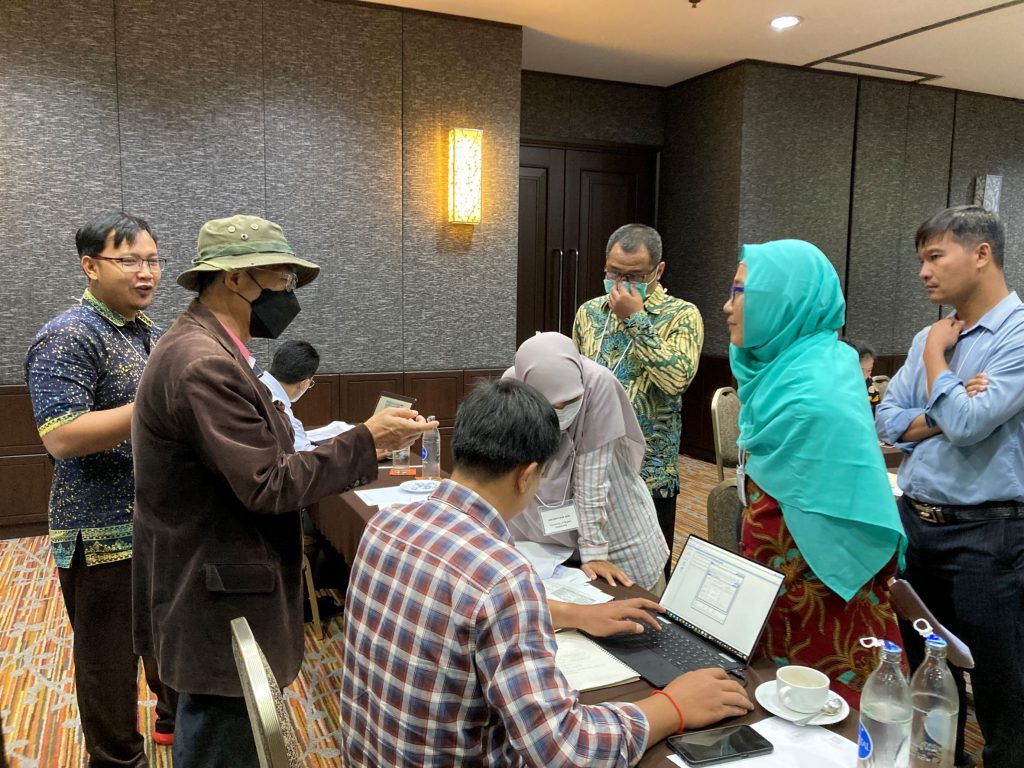
This DSSAT Training Program in Bangkok is a part of the two-year project entitled, `Capacity Development Training Workshop on Crop Simulation Modeling and Effects of Climate Risks on Agriculture Production Systems in Southeast Asia`, funded by the Asia-Pacific Network for Global Change Research (https://www.apn-gcr.org/project/capacity-development-training-workshop-on-crop-simulation-modeling-and-effects-of-climate-risks-on-agricultural-production-systems-in-southeast-asia/). Due to the Covid-19 pandemic the project was extended to allow for in-person training and capacity building.
